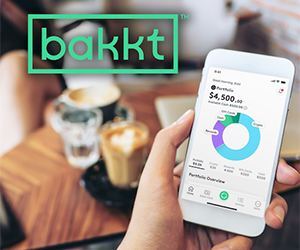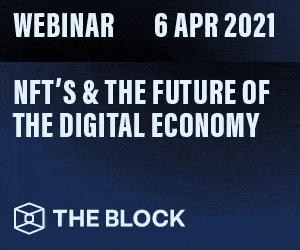BNY Mellon to Assist Grayscale with Bitcoin ETF Plans
Key Takeaways
- Grayscale Investments has selected BNY Mellon as an asset servicing provider.
- The move helps prepare Grayscale for converting its Bitcoin trust into an ETF.
- Grayscale is one of at least nine companies competing to offer the first Bitcoin ETF in the U.S.
Grayscale Investments has selected the Bank of New York Mellon as its asset servicing provider for the Grayscale Bitcoin Trust. The move is part of the firm’s commitment to converting its Bitcoin trust into an exchange-traded fund.
Grayscale Aiming for Bitcoin ETF
Grayscale has moved one step closer to converting its Bitcoin Trust into America’s first Bitcoin ETF.
The asset management giant announced a partnership with the BNY Mellon Tuesday, making the bank an asset servicing provider for the Grayscale Bitcoin Trust, effective October 2021. Grayscale also indicated that BNY Mellon would provide transfer agency and ETF Services for the trust upon its planned conversion to an ETF.
BNY Mellon has become actively involved in the cryptocurrency space in recent months. It began offering Bitcoin custody in February, claiming that crypto was “mainstream” at the time. It also invested in Fireblocks, an industry-leading custody and settlement platform for digital assets.
Grayscale’s latest announcement comes just 24 hours after the company obtained approval from the SEC for its Digital Large Cap Fund, marking its first SEC-regulated venture outside of Bitcoin and Ethereum.
Michael Sonnenshein, CEO of Grayscale Investments, said of the partnership with BNY Mellon:
“We are pleased that BNY Mellon will join a group of Grayscale’s best-in-class service providers, helping us deliver a seamless, industry-leading investment experience.”
Sonnenshein also added that the engagement with BNY Mellon is an important milestone in the company’s commitment to converting the Grayscale Bitcoin Trust into an ETF.
While the firm first applied for a Bitcoin ETF back in 2016, the firm did not follow through due to the lack of regulatory guidance on crypto assets. Now that the regulatory landscape has shifted, it’s once again making moves towards a Bitcoin ETF.
In February, Canadian regulators approved the world’s first direct-custody Bitcoin ETF from Purpose Investments. Despite this, the SEC is yet to approve a Bitcoin ETF in the United States.
Grayscale is not the only firm aiming to offer the first Bitcoin ETF in America. At least nine other companies have submitted applications, including Galaxy Digital Holdings Ltd. and Fidelity Investments. With competition intensifying, an American Bitcoin ETF approval before the end of 2021 seems more likely than ever.
Disclaimer: At the time of writing this feature, the author owned BTC and ETH.
The information on or accessed through this website is obtained from independent sources we believe to be accurate and reliable, but Decentral Media, Inc. makes no representation or warranty as to the timeliness, completeness, or accuracy of any information on or accessed through this website. Decentral Media, Inc. is not an investment advisor. We do not give personalized investment advice or other financial advice. The information on this website is subject to change without notice. Some or all of the information on this website may become outdated, or it may be or become incomplete or inaccurate. We may, but are not obligated to, update any outdated, incomplete, or inaccurate information.
You should never make an investment decision on an ICO, IEO, or other investment based on the information on this website, and you should never interpret or otherwise rely on any of the information on this website as investment advice. We strongly recommend that you consult a licensed investment advisor or other qualified financial professional if you are seeking investment advice on an ICO, IEO, or other investment. We do not accept compensation in any form for analyzing or reporting on any ICO, IEO, cryptocurrency, currency, tokenized sales, securities, or commodities.
See full terms and conditions.
Source: Read Full Article




